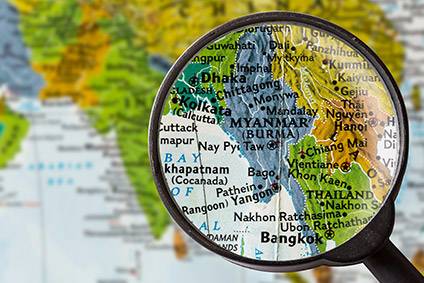
Danish fashion retailer Bestseller has paused the placement of new orders in Myanmar and is urging the EU to develop clear guidelines on how companies should conduct themselves when economic sanctions are imposed on sourcing regions.
Its concerns have been triggered by EU moves on Monday (19 April) to impose sanctions on ten individuals and two military-controlled companies in Myanmar, following the military coup in February and subsequent repression. Among those sanctioned are Myanmar Economic Holdings Limited (MEHL), which is said to have links to the garment manufacturing sector.
Bestseller had already imposed a complete ban on suppliers, factories, sub-suppliers, and suppliers of materials owned by or affiliated with the military of Myanmar.
And since 19 March it has also suspended its collaboration with suppliers in the country, joining brands including Benetton and H&M which have also paused all new orders from Myanmar.
While it remains concerned about the escalation of violence and the unpredictability of the situation, Bestseller noted it intends to re-engage when operationally and ethically possible, and would work diligently with suppliers to deliver on existing orders. “Where this is not possible, the necessary steps will be taken to secure flow of goods,” it said.
“We cannot imagine anything worse than if our company, in any way possible, should contribute to the situation Myanmar now finds itself in. In fact, our work in the country to date has been about the exact opposite – contributing positively to the country’s development, both economically and politically,” Anders Holch Povlsen, CEO and owner of Bestseller, said in a statement on Monday.

US Tariffs are shifting - will you react or anticipate?
Don’t let policy changes catch you off guard. Stay proactive with real-time data and expert analysis.
By GlobalData“The situation in Myanmar has taken a turn that we can never support. We haven’t ordered goods from the country since 19 March and we will not resume business there until the country is on the right track again.
“We urge the European Union’s foreign ministers to draw up guidelines for how European companies should respond and – not least – how we, in the most ethical and responsible way, can withdraw from locations where sanctions require it.
“Our biggest concern is the 48,000 factory workers that work at the 36 factories that we and other companies have business with. Their livelihoods rely upon a stable democracy that can secure jobs and development through trade.”
Povlsen added: “We feel that we have a societal responsibility towards the many workers in Myanmar and hope that the country gets back on track as quickly as possible, and we stand ready to help the country and resume trade there as soon as it is possible.
“By 10 May, we will present a report that describes the extent of our work in and contribution to Myanmar. There should be no doubt that we in Bestseller always seek out the most responsible path.”
Garment manufacturers, most of whom are located in the country’s commercial capital Yangon, are a major employer and a significant source of foreign currency for Myanmar. The sector employs more than half a million jobs and generates over US$6bn in sales annually, according to the European Union (EU) embassy to Myanmar.
Textile and garment exports to the European Union (EU) were valued at more than US$1.4bn in 2020, with clothing accounting for 80% of Myanmar’s total exports to the EU.
At the end of last month, the US suspended all engagement with Myanmar under a trade and investment agreement until the return of a democratically elected government.




